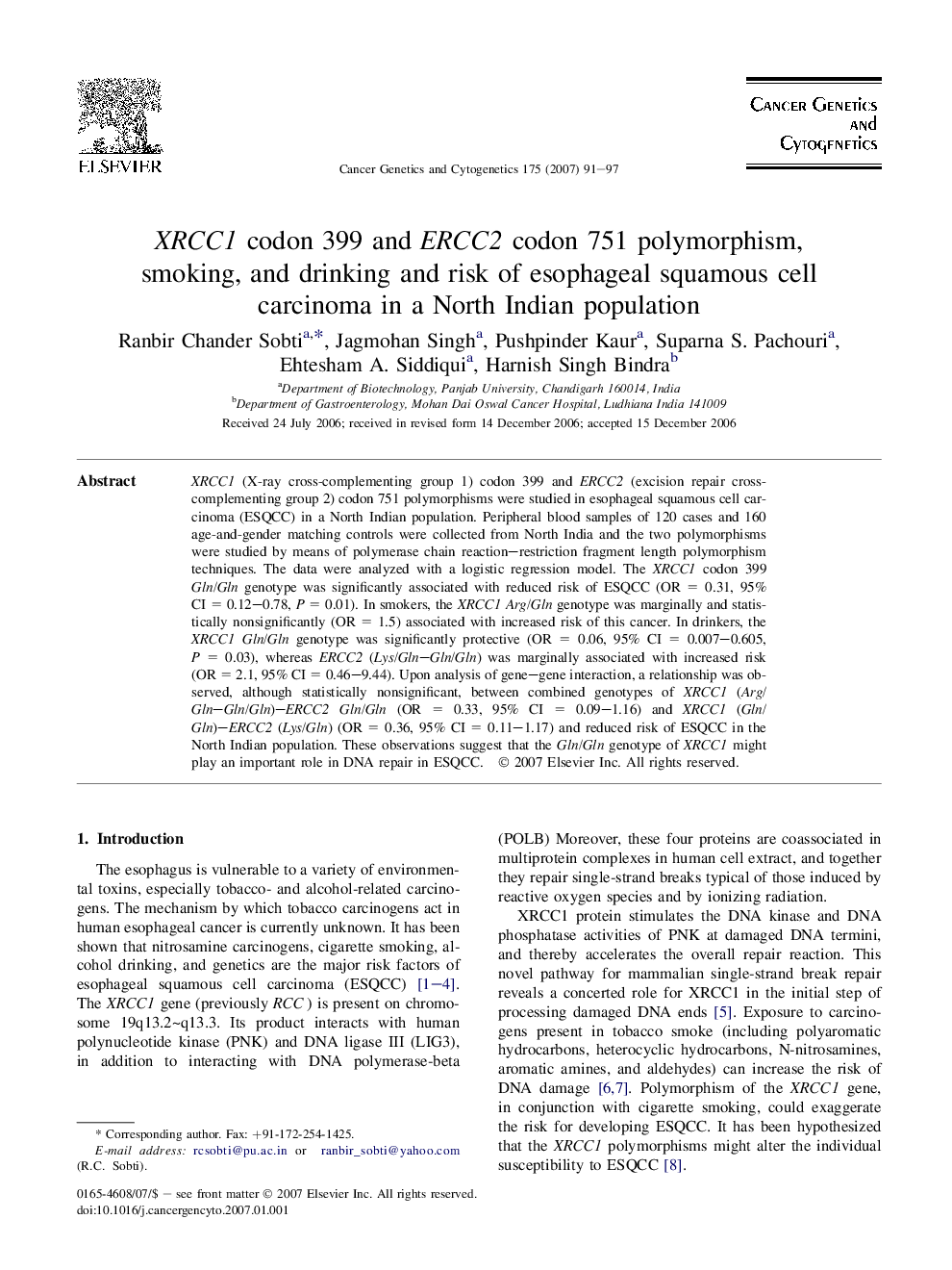| Article ID | Journal | Published Year | Pages | File Type |
|---|---|---|---|---|
| 2112103 | Cancer Genetics and Cytogenetics | 2007 | 7 Pages |
XRCC1 (X-ray cross-complementing group 1) codon 399 and ERCC2 (excision repair cross-complementing group 2) codon 751 polymorphisms were studied in esophageal squamous cell carcinoma (ESQCC) in a North Indian population. Peripheral blood samples of 120 cases and 160 age-and-gender matching controls were collected from North India and the two polymorphisms were studied by means of polymerase chain reaction–restriction fragment length polymorphism techniques. The data were analyzed with a logistic regression model. The XRCC1 codon 399 Gln/Gln genotype was significantly associated with reduced risk of ESQCC (OR = 0.31, 95% CI = 0.12–0.78, P = 0.01). In smokers, the XRCC1 Arg/Gln genotype was marginally and statistically nonsignificantly (OR = 1.5) associated with increased risk of this cancer. In drinkers, the XRCC1 Gln/Gln genotype was significantly protective (OR = 0.06, 95% CI = 0.007–0.605, P = 0.03), whereas ERCC2 (Lys/Gln–Gln/Gln) was marginally associated with increased risk (OR = 2.1, 95% CI = 0.46–9.44). Upon analysis of gene–gene interaction, a relationship was observed, although statistically nonsignificant, between combined genotypes of XRCC1 (Arg/Gln–Gln/Gln)–ERCC2 Gln/Gln (OR = 0.33, 95% CI = 0.09–1.16) and XRCC1 (Gln/Gln)–ERCC2 (Lys/Gln) (OR = 0.36, 95% CI = 0.11–1.17) and reduced risk of ESQCC in the North Indian population. These observations suggest that the Gln/Gln genotype of XRCC1 might play an important role in DNA repair in ESQCC.
